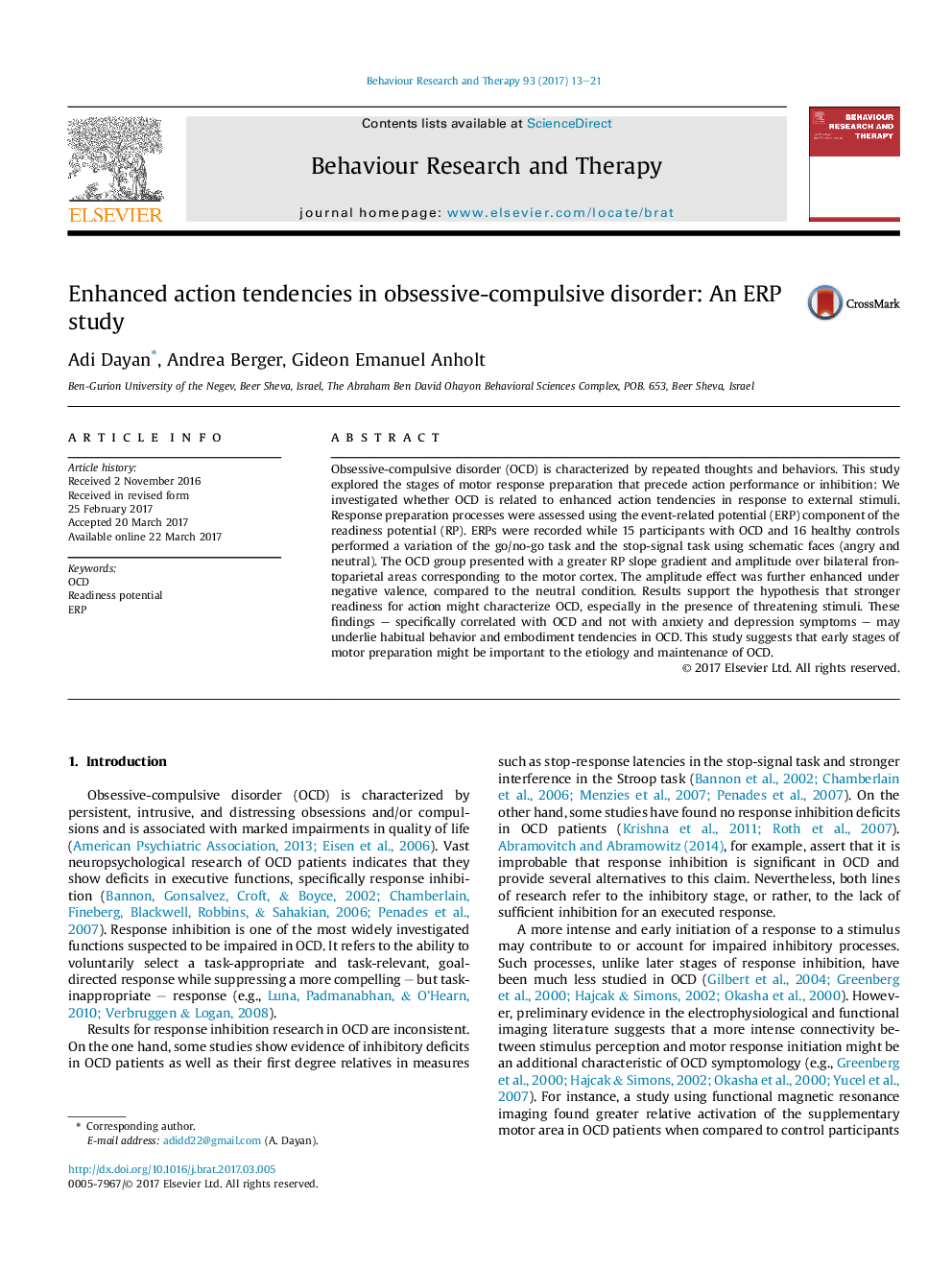| کد مقاله | کد نشریه | سال انتشار | مقاله انگلیسی | نسخه تمام متن |
|---|---|---|---|---|
| 5038188 | 1472756 | 2017 | 9 صفحه PDF | دانلود رایگان |

- Early response preparation in OCD is examined via ERP: readiness potential (RP).
- A greater RP slope gradient and amplitude in motor areas were found in the OCD group.
- The effect was enhanced under negative valence.
- Early stages of motor preparation may be important to the etiology and maintenance of OCD.
Obsessive-compulsive disorder (OCD) is characterized by repeated thoughts and behaviors. This study explored the stages of motor response preparation that precede action performance or inhibition: We investigated whether OCD is related to enhanced action tendencies in response to external stimuli. Response preparation processes were assessed using the event-related potential (ERP) component of the readiness potential (RP). ERPs were recorded while 15 participants with OCD and 16 healthy controls performed a variation of the go/no-go task and the stop-signal task using schematic faces (angry and neutral). The OCD group presented with a greater RP slope gradient and amplitude over bilateral frontoparietal areas corresponding to the motor cortex. The amplitude effect was further enhanced under negative valence, compared to the neutral condition. Results support the hypothesis that stronger readiness for action might characterize OCD, especially in the presence of threatening stimuli. These findings - specifically correlated with OCD and not with anxiety and depression symptoms - may underlie habitual behavior and embodiment tendencies in OCD. This study suggests that early stages of motor preparation might be important to the etiology and maintenance of OCD.
Journal: Behaviour Research and Therapy - Volume 93, June 2017, Pages 13-21